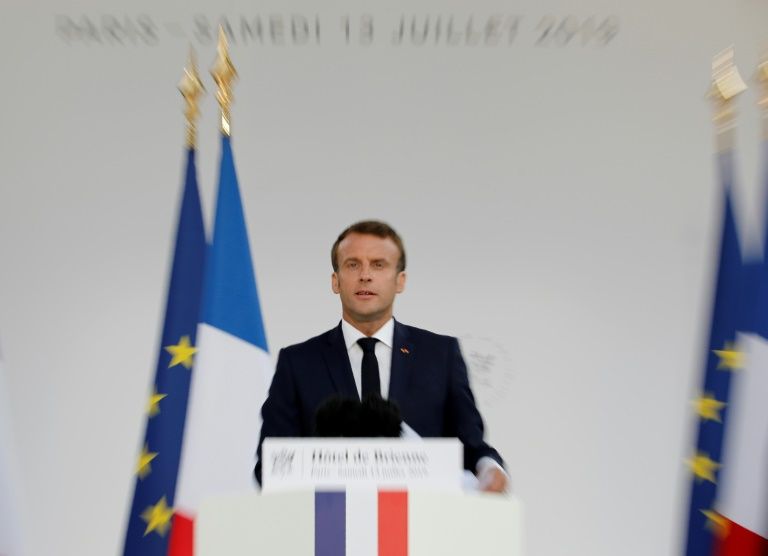French President Emmanuel Macron said on July 13 he had approved the creation of a space command within the French air force to improve the country’s defence capabilities.
Addressing military personnel a day before the Bastille Day parade, Macron said the new military doctrine setting up a space command would strengthen protection of French satellites. He said the investment involved had yet to be determined.
Macron’s announcement on the creation of an independent military space centre could be seen in the context of the same independent defence policy in Europe that has long been on the French agenda. Of course, France has faced a serious challenge in achieving this goal, which is the transatlantic policies pursued by some EU member states, in particular, the United Kingdom.
But given Britain’s decision to withdraw from the European Union and the unilateralist policies Donald Trump pursues without coordinating and cooperating with his European allies, now space and opportunity have been provided for France more than before to pursue more seriously European independent defence arrangements Paris had in mind before.
At the present time, the alignment of Germany and some other European countries, such as Spain, also help France to achieve an independent defence system more easily.
It should be noted that Donald Trump tried to undermine Europe’s security umbrella from time to time and, on the other hand, align European governments in various economic, defence and political spheres more than ever; But this is in conflict with the economic and security interests of European governments, and these governments, especially France, are now struggling to reduce their defence and security dependency on the United States by taking slow steps.
In the meantime, air and space costs are so high that over the past few decades, Europe has been providing a large portion of the budget from the United States and was under the US umbrella. But taking into account Trump’s policies of increasing its influence and the dependence of European governments on America in various defence and space areas, now European governments are seeking independent funding for protecting their satellites and sending independent defence, military, and communications satellites to space, thereby reducing their dependence on the United States.
To date, most European countries have been dependent on the United States in the space field because NASA is the largest aerospace organization in the world, providing the bulk of global space spending and budgets.
Now the recent move by France to launch a space command within the air force can be an opportunity for other European governments to act more independently from the United States.
Of course, such an atmosphere has been experienced in the past; in the Cold War period, with regard to the ideological rivalry between the two superpowers of the East and the West, there was practically the realm for the Soviet Union and the United States have a close rivalry in space. The US had the upper hand in this field by showing its first astronaut on the moon.
The Strategic Defense Initiative, also known as the Star Wars by the media circles, was one of the defence schemes of the United States during the presidency of Ronald Reagan, which was a defensive measure against possible attacks by former Soviet-era long-range missiles.
Reagan is said to have been able to impose heavy military costs on the Soviet Union, which prepared the ground for its disintegration.
But at this time it is unlikely that the same space and situation would be repeated because the US has currently no rival in the field of space; moreover, there is no other country that could handle these heavy military budgets. Therefore, France now should seek to adopt independent policies in this area rather than think about competing with the United States!










0 Comments